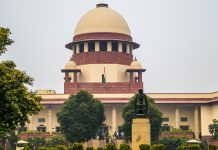Whenever a crime occurs the state steps into the shoes of the victim and prosecutes the offender. instigation is undertaken to collect both the oral and documentary evidence to support the case of the prosecution. During the investigation, police have ample power of search and seizure of property.
Let us understand this with the help of an illustration. While travelling by bus the mobile phone of Mr X was stolen. He lodged a complaint about theft and FIR under section 379 IPC is registered. After some time the phone is found active in electronic surveillance and is recovered from Mr Y. The recovery of a stolen mobile phone from the possession of Mr Y is one of the crucial pieces of evidence to prove the ingredients of Section 411 IPC. To prove the offence the investigating officer will prepare the seizure memo showing the recovery of the stolen mobile phone from the possession of Mr Y. In order to avoid any question of tampering of case property, he will also seal the recovered case property and deposit it in the police station. An entry will also be made in the register kept at the police station. After doing these formalities, the investigating officer needs orders from the Court before releasing the case property.
Every complainant wants the investigating officer to return the recovered articles to him the moment they are recovered from the accused. But the procedure needs to be followed! Now, what does Mr X/complainant need to do to get his stolen mobile phone back?
Complainant/Mr. X needs to move an application under section 451 Crpc for Superdari before the Court seeking orders for releasing of case property to him. The Court, after being satisfied with the title of Mr X/complainant and identity of case property, may order for its release on Superdari imposing some conditions like preparation of panchnama, photographs, indemnity bond, etc.[Manjeet Singh vs State, (2014) SCC Online Del 4652]
Once the Court orders for release of case property i.e. Gold Chain and Mobile phone to Mr. X, the investigating officer will ensure that aforesaid documents are prepared and an entry be made in the register kept at the police station acknowledging release and handing over of case property to the applicant/complainant. When the Trial will commence, the case property can be proved in the Court by photographs and panchnama. The physical production of case property may not be required unless there are specific directions from the Court.















